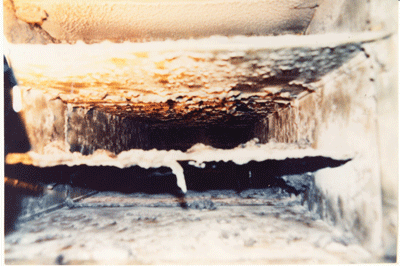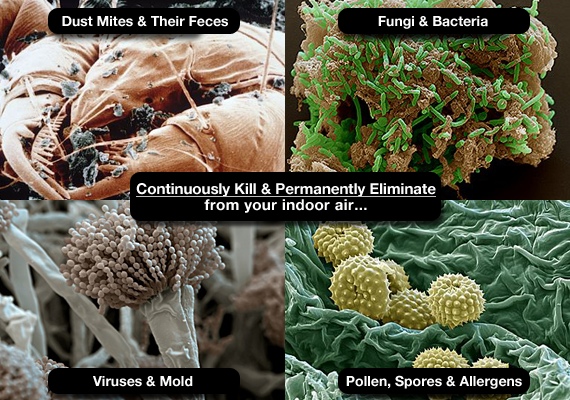The goal of regular duct cleaning is to remove dust, mold, dirt and other irritants from the home, improving air quality and reducing the risk of a serious reaction in people with asthma or allergies. While there’s no proof that cleaning your ducts regularly will eliminate allergies, it can be an effective way to reduce irritants.
Most people think of allergens as things that occur outside the home. Dust and air pollution aren’t the only problem substances, however. It’s easy for small particles to build up inside air conditioning ductwork. Dust, mold spores, mildew and even pet hair can then be circulated around your home by your air conditioning system’s fan. This pulls allergens into rooms that have been well-cleaned. It also increases the risk of an allergy or asthma attack in sensitive people. This is a bigger problem in humid areas where mold grows readily.
While the air ducts aren’t the only source of allergens or asthma triggers in your home, they’re one that many sensitive people often overlook. Dirty ducts could be causing your air-cleaning devices to work harder. They could also be creating a source of irritation that even regular vacuuming can’t entirely overcome. Air duct cleaning is a viable option for people who know they have allergies or asthma and who already take precautions elsewhere in their homes.
Not all dirty air ducts are a serious problem. According to the U.S. Environmental Protection Agency, a thin layer of dust won’t necessarily cause problems, even for people with respiratory sensitivities. Cleaning these ducts provides little to no benefit for healthy people and those with mild allergies. Those with more severe problems may experience greater symptoms from dirty ducts, however, especially if their HVAC system is home to mold or pests.
The EPA recommends having your air ducts cleaned by a professional whenever you see substantial mold growth on metal or other hard surfaces. This may require having your ducts inspected by an experienced technician. If your service provider reports mold, ask them to show it to you so that you can make an informed decision about cleaning your ducts.


It’s also a good idea to have the ducts cleaned if you know that insects, rodents or other pests have been living inside, or if there is so much dust and dirt inside your ducts that they become clogged. If you see your air conditioning registers emitting dust, cleaning should be a real priority. Some people have their ducts cleaned every few years because they don’t want to worry about the risk. No matter what cleaning schedule you choose, you can feel confident that cleaning isn’t harmful, either to your health or the condition of your ducts.
You can also choose from many services designed to protect your ducts. Some HVAC companies offer chemical biocides that kill mold, bacteria and other micro-organisms. These substances are designed to prevent your ducts from being colonized in the future, but there’s not a lot of information about their effectiveness. The EPA notes that no biocides are currently approved for use in air duct systems with internal insulation, so if you have this kind of ductwork, consider biocide application carefully.
There’s no proof that cleaning your home’s ductwork will reduce your chances of an asthma or allergy attack. All authorities say it won’t do any harm, however. It could even cut down on mold spores, mildew, and irritating dust. If you’re not sure about cleaning your ducts, get advice from a trustworthy professional who will talk honestly about what duct cleaning services are right for you.



As a chronic allergy sufferer, I am so happy I saw this article! We change the filter regularly, but have never had the ducts cleaned. I am going to look into having this done next week.